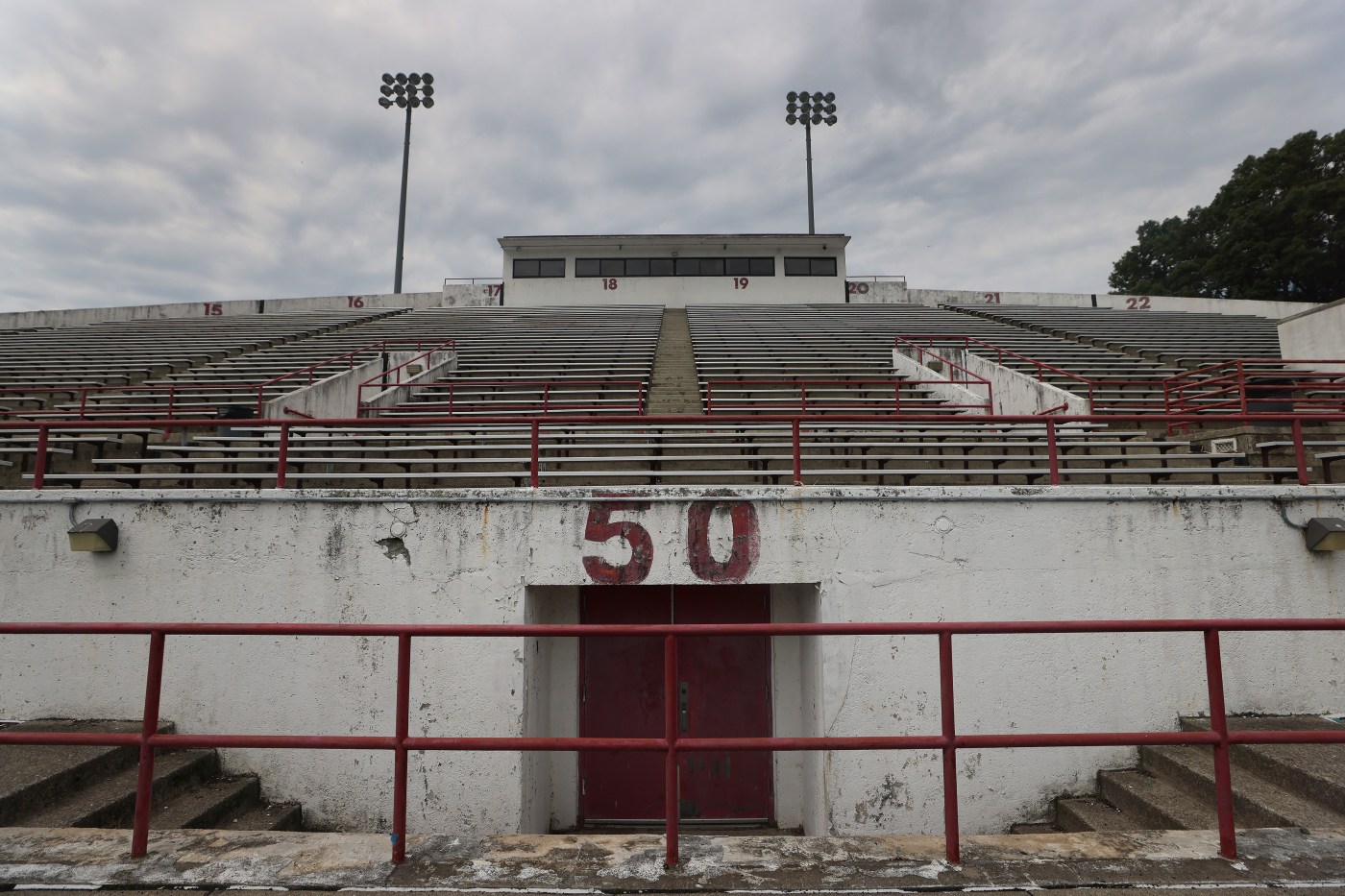
Boston city councilor calls for Mayor Wu to cancel White Stadium plan after taxpayer tab balloons
Boston City Councilor Ed Flynn is calling for the Wu administration to cancel a controversial plan to rehab Franklin Park’s White Stadium to house a pro soccer team, citing the ballooning cost to taxpayers and persistent community opposition.
Flynn emphasized the need for “fiscal responsibility” in a Monday statement calling for Mayor Michelle Wu to kill Boston’s public-private plan for the dilapidated stadium, on the heels of the latest estimates that show the city’s portion of the cost for renovation has skyrocketed from $50 million to $91 million and counting.
“Prior to these latest reports that the White Stadium project will now cost the city $91 million, I have repeatedly called for a genuine community process,” Flynn said. “Residents did not feel that they were taken seriously when it came to the cost for the city, other available options, the use of public property, or quality of life and environmental issues.
“We should cancel this proposal immediately and work together with residents and stakeholders across the city to provide the best option,” Flynn said.
He said the project needs to be shaped not just by support for a professional women’s soccer team but by “the voice of our residents and student athletes as well.”
Flynn, who is considering challenging Wu for mayor in 2025, also jumped on comments she made on GBH’s Boston Public Radio last week, when she made it clear that, amid an 8% jump in spending and 10.5% spike in taxes for homeowners, the city was committed to paying for its “half of the stadium, no matter what it costs” to taxpayers.
Flynn said he has long-considered the project to be “tone-deaf” at a time when the city’s budgetary crunch has left the Wu administration, Boston City Council and state Legislature spending the better part of this past year debating a property tax shift proposal that ultimately died last week in the Senate, and “repeatedly warned that figure could easily inflate with higher cost overruns.”
The total cost of the city’s public-private plan to tear down and rehab White Stadium to house a new professional women’s soccer team has ballooned from initial estimates of $100 million to roughly $200 million. The city’s share has increased from $50 million to $91 million, according to numbers that first became public last month during a public facilities commission meeting.
Proponents have touted the plan as essential to restoring a century-old stadium that the mayor says has become “on the verge of being unusable’ for Boston Public Schools students, who would share the facility with the new National Women’s Soccer League team, BOS Nation Football Club.
The project, however, has garnered intense local opposition and is the subject of a lawsuit challenging the shift in the Franklin Park facility to use for a for-profit organization, a privatization claim the city denies.
The mayor’s latest remarks around the city’s commitment to the project, regardless of cost, inflamed the long-standing opposition from parts of the community. Some critics likened Wu’s comments to her making a promise to sign a “blank check” as part of the city’s public-private partnership with Boston Unity Soccer Partners, an all-female ownership group that includes Boston Globe CEO Linda Pizzuti Henry among its investors.
Flynn pointed to several elements of that community opposition in his statement, which along with the alleged privatization and fiscal concerns around the ballooning cost to taxpayers, include “the practicality” of having two soccer stadiums, when the women’s team could conceivably share use of a new soccer stadium in Everett with the New England Revolution, a professional men’s team.
The Kraft Group is behind the Everett stadium, which was recently green-lighted by the state Legislature. Josh Kraft, son of the billionaire New England Patriots’ owner Robert Kraft and head of the family’s philanthropic arm, is also considering a bid for mayor in 2025.
Related Articles
Long-time housing, city official announces candidacy for Boston City Council At-Large seat
Battenfeld: Boston City Councilor Ruthzee Louijeune poised to fill vacuum after Michelle Wu gives birth
Fed subpoena revealed: Investigators wanted Fernandes Anderson’s notes, chats, images and more
Pols & Politics: Winners and losers in Boston’s Great Tax Debate (hint: the truth)
Boston Water and Sewer Commission to meet over proposed 3.4% rate increase
Flynn further cited a proposal from abutters to preserve White Stadium as a high-school-only facility. The neighbors, some of whom are plaintiffs in the pending lawsuit against the city and Boston Unity, have cited experts as putting the cost of those renovations at roughly $20 million.
Many neighbors have also stated they were not taken seriously on quality-of-life issues like traffic and congestion, available parking, trash removal and public safety, Flynn’s statement said.
Wu last week defended the escalating cost of the project, saying that initial estimates were only a “placeholder,” and that the current figure is “much more realistic” due to the relevant contracts being “fully baked.”
Such shifts are seen with every capital project, she said, while attributing the cost overruns to the design phase, which was dependent, in part, on community feedback. The mayor also dismissed the potential for a more modest $20 million investment, saying that amount could cover cosmetic costs, “but would not allow us to really take things to the next level.”
“We are going to pay for our half of the stadium, no matter what it costs,” Wu said. “But we’re about to begin construction and we feel that the estimates that we have are going to be in the ballpark of what is needed, and that this overall is going to be a deal that is worth it for generations to come for our city.”
Wu’s office did not respond to a request for comment on Flynn’s remarks.
City Councilor Ed Flynn (Herald file)
A sign marking an entrance to White Stadium hangs near an open gate at the facility. (AP Photo/Steven Senne, File)


